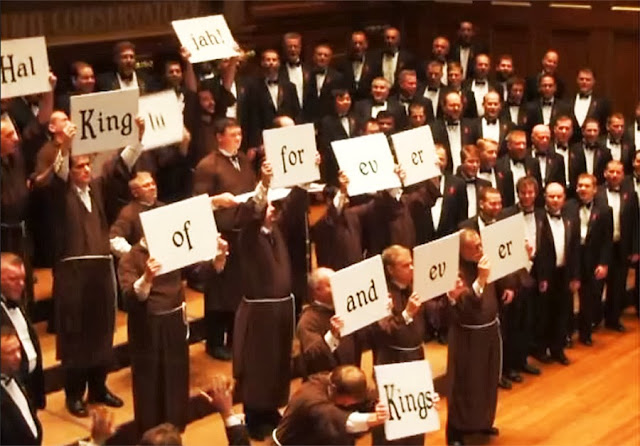Sunday, December 29, 2013
Friday, December 27, 2013
Tuesday, December 24, 2013
Sunday, December 15, 2013
Peter O'Toole In Memoriam
Peter Seamus O'Toole
2
August 1932 in Connemara, Ireland
14 December 2013, London, England)
14 December 2013, London, England)
Sunday, December 8, 2013
Monday, November 18, 2013
Thursday, November 14, 2013
Librarian recommendations needed!
Please encourage your librarian at your local, school, or university library to order this book -- ultimately and ideally this may lead to an affordable paperback but even if it doesn't, it will get the book on the shelves if folks wish to have the opportunity to read it! This is what libraries are for!
Details at Amazon.com -- they also have a slightly cheaper kindle version, but this is not suitable for libraries...
The Hallelujah Effect will be of interest to those interested in Leonard Cohen (yes!) and k.d lang (yes!) plus Nina Simone and Joan Baez and Jane Siberry and Madonna...
...but it will also interest those interested in music and desire, including gender....
....as well as media and music more generally in addition to those interested in Adorno on radio and music and sound...
....and that in addition, too, to Nietzsche, classical Greek tragedy, and Beethoven.


So it's three books in one!
Please encourage your librarian at your local, school, or university library to order this book -- ultimately and ideally this may lead to an affordable paperback but even if it doesn't, it will get the book on the shelves if folks wish to have the opportunity to read it! This is what libraries are for!
Babette Babich, The Hallelujah Effect: Philosophical Reflections on Music, Performance Practice, and Technology (Surrey: Ashgate, 2013) ISBN: 1409449602
The publisher liked my cover design, featuring the same Franz von Stuck Orpheus on the cover of their quarterly catalogue when the book was first released.
Details for ordering from Ashgate. There is also an e-book available -- check with Ashgate for details.Details at Amazon.com -- they also have a slightly cheaper kindle version, but this is not suitable for libraries...
The Hallelujah Effect will be of interest to those interested in Leonard Cohen (yes!) and k.d lang (yes!) plus Nina Simone and Joan Baez and Jane Siberry and Madonna...
...but it will also interest those interested in music and desire, including gender....
....as well as media and music more generally in addition to those interested in Adorno on radio and music and sound...
....and that in addition, too, to Nietzsche, classical Greek tragedy, and Beethoven.


So it's three books in one!
Thursday, October 31, 2013
"Cups" Tap Dance - Anna Kendrick (Pitch Perfect)
http://www.youtube.com/v/Q4FYNF02yEM?version=3&autohide=1&autohide=1&autoplay=1&attribution_tag=xe5Huu8F-Z7xA9XF3N9sWA&showinfo=1&feature=share
Sunday, October 27, 2013
Tuesday, October 22, 2013
Sunday, October 20, 2013
Tuesday, October 8, 2013
The Hallelujah Effect -- Crossing Blogs
DrHGuy – Another Other Leonard Cohen Site On Life, Love, Lust, & Leonard Cohen
Cross-posting a blog post from a Leonard Cohen site by Allan Showalter that fans of Leonard Cohen should know about. Comments on the overpricing of The Hallelujah Effect are, alas, spot on: the book is woefully overpriced, should be ordered for libraries and should be read there.
I can say this as the author because I don't make anything from the book (I can't afford it myself: cost me a fortune to send a copy to Cohen himself -- and, remarkably, the publisher did not do that).
Of course, that's why this is not only a book about Leonard Cohen, and his Hallelujah, about other Hallelujahs from the Bible to Handel and so on to Al Jolson, and a reading of the history of covers of Hallelujahs --- including the one singer almost everyone else, including Alan White, author of yet "another other" new book on Cohen's Hallelujah, manages to pass over in silence. That is the singer k.d.lang as her extraordinary voice illustrates the song as a song, the very musical power of Leonard Cohen's song. And she does it as musicians say, as even Leonard Cohen has said, like no one else.
For this reason this book had to include three bonus or extra tracks, as it were, about the music industry, about Adorno's Current of Music, and about the centrality of Beethoven in Nietzsche's The Birth of Tragedy.
But maybe I should take a tip from the music industry and just issue the tracks all on their ownsome...
Of course, that's why this is not only a book about Leonard Cohen, and his Hallelujah, about other Hallelujahs from the Bible to Handel and so on to Al Jolson, and a reading of the history of covers of Hallelujahs --- including the one singer almost everyone else, including Alan White, author of yet "another other" new book on Cohen's Hallelujah, manages to pass over in silence. That is the singer k.d.lang as her extraordinary voice illustrates the song as a song, the very musical power of Leonard Cohen's song. And she does it as musicians say, as even Leonard Cohen has said, like no one else.
For this reason this book had to include three bonus or extra tracks, as it were, about the music industry, about Adorno's Current of Music, and about the centrality of Beethoven in Nietzsche's The Birth of Tragedy.
But maybe I should take a tip from the music industry and just issue the tracks all on their ownsome...
Wednesday, October 2, 2013
Thursday, September 26, 2013
Friday, September 13, 2013
Wednesday, September 4, 2013
Monday, September 2, 2013
It doesn't matter which you heard....
In spite of my
previous familiarity with Cohen’s singing of his own Hallelujah, I had
no (or perhaps better said little knowledge) of the range of covers of that same
song.
Certainly I had
not seen Shrek (a blockbuster “spectacular,” as they say, of Hollywood
animation). In fine, I was as unaware of the many versions of the
Hallelujah song as many readers reading now might similarly suppose themselves
to be. What is at stake here is that this effective ignorance (be it a matter
of genuine non-knowledge or non-attention, and these are different things) is
also part of the exemplary and popular commonality of the Hallelujah Effect.
It
doesn’t matter, as Cohen would add in a later verse, which you heard and it
tends to be the case that no matter what one thinks one has heard some version
of it, whether one knows it or not.
As Bryan Appleyard emphasizes this point, you do know the song whether or not you recognize your own familiarity with it:
As Bryan Appleyard emphasizes this point, you do know the song whether or not you recognize your own familiarity with it:
Even if you think you haven’t heard it, I can guarantee you have. It has been covered by, among many others, Allison Crowe, k. d. lang, Damien Rice, Bono, Sheryl Crow and Kathryn Williams. Bob Dylan has sung it live in a performance that has, apparently, been bootlegged. It has been used endlessly in films and on TV. Rufus Wainwright sang it on the sound-track of Shrek, Jeff Buckley’s version was used on The West Wing and The OC, John Cale sang it on Scrubs and so on.[1]At the beginning of my own experience with the Hallelujah effect, and not being too, too much of a fan, be it of Cohen or anybody in the pop music world, I ‘liked’ Cohen’s Hallelujah — this is the Facebook-speak that has made “liking” more charged as conventional affect than it should be, and this remains true whether one substitutes a google+1 or a heart a thumbs up avatar or what have you.
[1] Appleyard, “Hallelujah! On Leonard Cohen’s Ubersong,” The Times, Sunday Times, 9June 2005. This is, indeed, among other things, part of Steven Lloyd Wilson’s “The Minor Fall, The Major Lift” along with a useful discussion of rhythm, illustrated in his own text with paratactically helpful interpellations.
(There is a whole yet-to-be-unpacked phenomenology of what one ought to call the Montessori effect: writing as a hands-on, whole body phenomenon. The appeal of the touch screen for the particular, relatively unfurred primates that we happen to be, and what using such buttons and restricted gestures does [or undoes] to our minds, would have to be part of that.)
Perhaps this was due to Cohen’s rhythmic delivery — I confess to a special weakness for his Who by Fire — perhaps this is just because I am fond of words, be it plainchant, spoken music, spoken poetry, word jazz — I spent my student years in Stony Brook and Boston listening to the great Ken Nordine (see link to the October 2012 edition of the Chicago Tribune)— and such and such.
But and at the same
time as I ‘liked’ Cohen’s song, it was also true that it was not my thing. I
could, as we say, take it or leave it.
That was that until
what I call dueling video-posts on Facebook.
But this dynamic is at work with other posts, like photos and like quotations from Woody Allen Esquire interviews --- as Sue Zemka, friends with Bob Frodeman says in response to the Woody Allen quote-thing Bob has going on as what she calls "an FB Facebook tear."
But this dynamic is at work with other posts, like photos and like quotations from Woody Allen Esquire interviews --- as Sue Zemka, friends with Bob Frodeman says in response to the Woody Allen quote-thing Bob has going on as what she calls "an FB Facebook tear."
Subscribe to:
Posts (Atom)


_0and.jpg)


.jpg)













